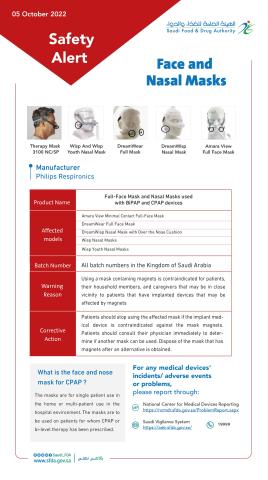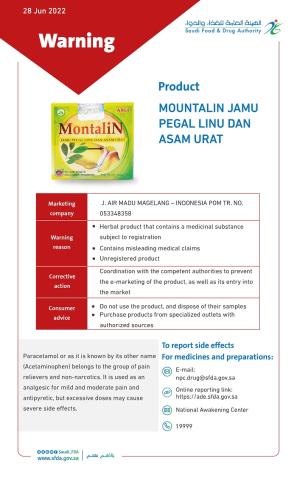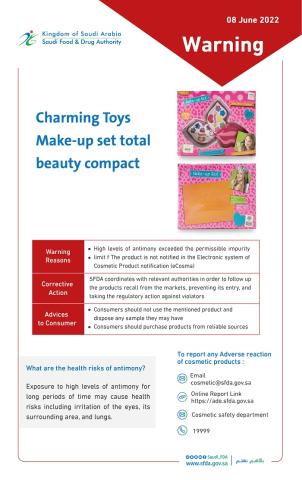On February 6, 2008, the U.S. Food and Drug Administration (FDA), the American equivalent to the Saudi Food and Drug Authority (SFDA), announced its intention to take enforcement action against companies marketing unapproved, injectable Colchicine, a drug used to treat gout. Colchicine is a highly toxic drug that can easily be administered in excessive doses, especially when given intravenously. There is a narrow margin between an effective dose of the drug and a toxic dose that can result in serious health risks, including death. The FDA is aware of 50 reports of adverse events associated with the use of intravenous Colchicine, including 23 deaths. Potentially fatal effects include low blood cell counts, cardiac events, and organ failure. This action does not affect Colchicine products that are dispensed in tablet form.
In addition to being manufactured by pharmaceutical companies, injectable Colchicine products are sometimes formulated on a smaller scale by compounding pharmacies, often for use in the treatment of back pain. Three of the deaths from intravenous Colchicine occurred in March and April of 2007 and were associated with the use of compounded Colchicine that, due to an error in preparation, was eight times more potent than the amount stated on the label. The FDA has not approved Colchicine in any dosage form for the treatment of back pain. In May 2007, the U.S. FDA informed all health care professionals about these deaths associated with compounded injectable Colchicine products.
The U.S. FDA informed individuals and companies to stop making these products within 30 days and stop shipping the product within 180 days or face regulatory action.
Report Adverse Drug Reactions to The Saudi FDA:
The public and health professionals are encouraged to report adverse drug reactions the National Pharmacovigilance Center on the Internet at:



